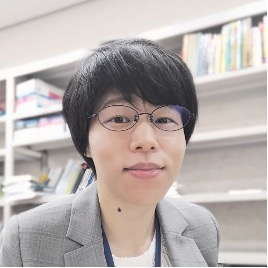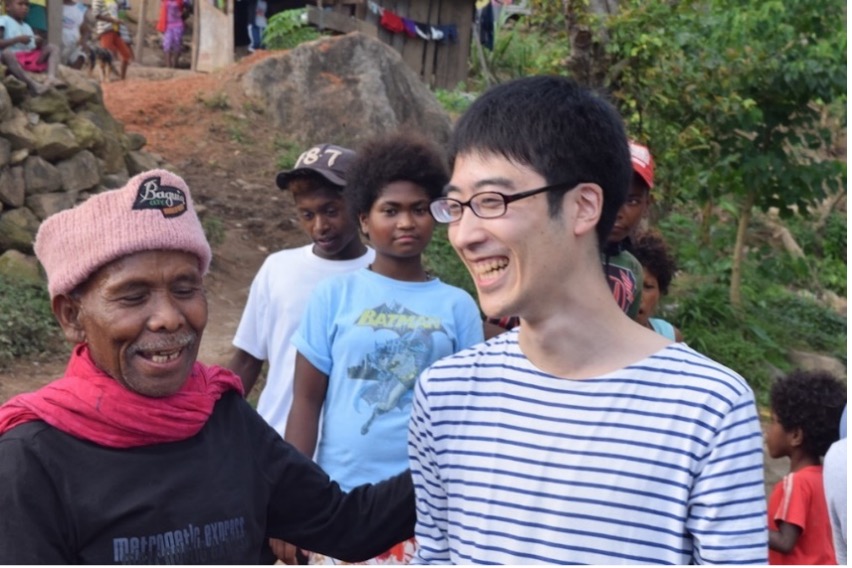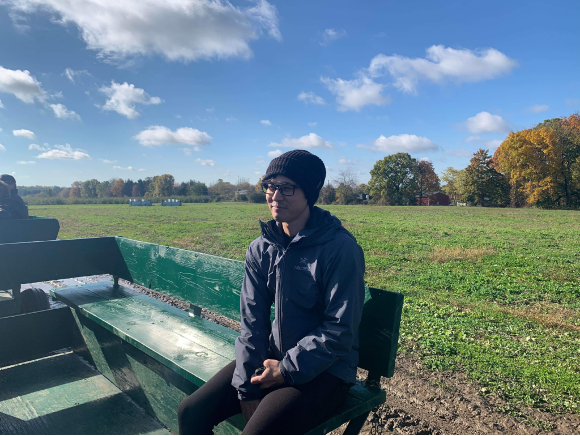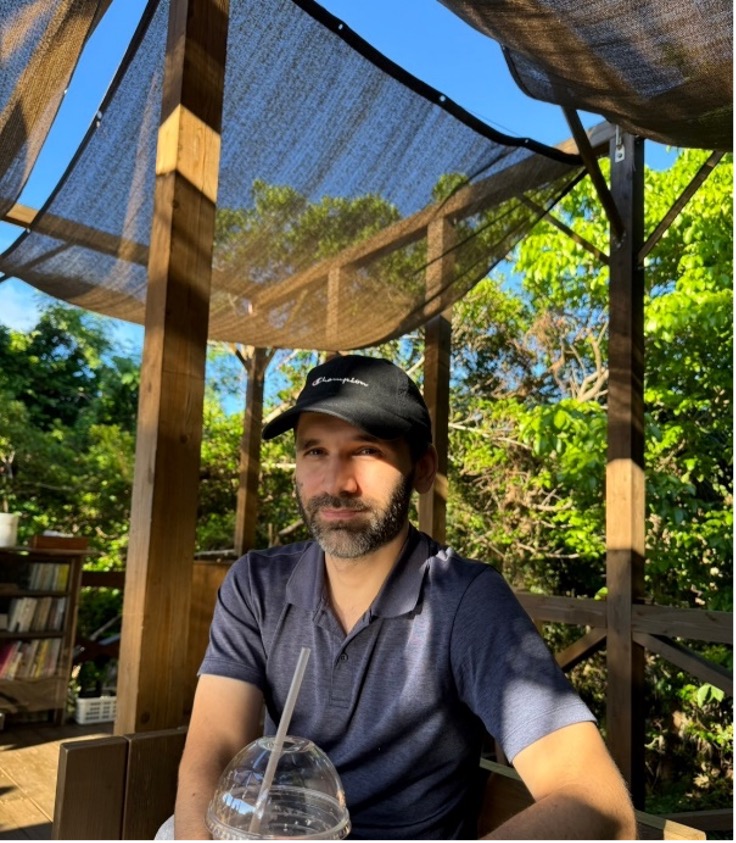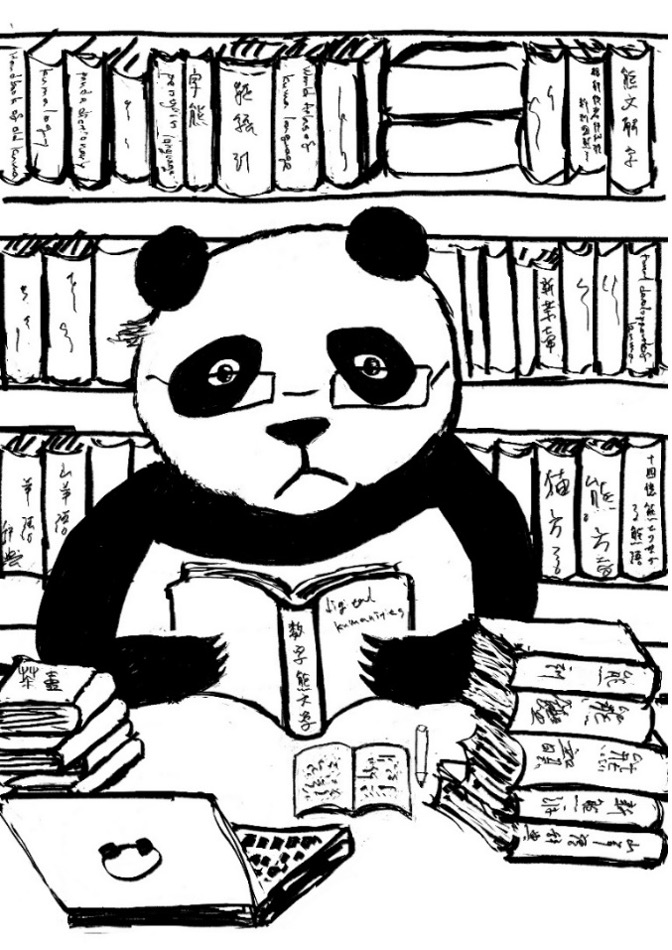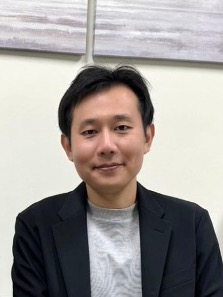2024年10月に着任し、言語文化学専攻第二言語教育学講座・英語部会に所属しております。私は言語、文化、社会、権力の交差点を旅する応用言語学研究者です。韓国で生まれ、多文化家庭で育ち、アメリカで博士号を取得後、2020年から日本で英語教育に携わってきました。現在は香港出身の配偶者と日本語でコミュニケーションを取る韓国人として生活しています。
常に多言語・多文化が交錯する環境で過ごしてきた経験から、言語と社会、文化、権力、アイデンティティの結びつきに強い関心を持つようになりました。修士課程では多文化家庭の学生(韓国で移民背景を持つ生徒を指す用語)の言語学習について、博士課程では就職活動生の英語学習に焦点を当て、学習者のアイデンティティと言語の関係、また英語と権力の関係に対する学習者の認識と対処方法について研究を行ってきました。
現在は、トランスランゲージングと多様性を活用した英語教育、および第二言語教師のアイデンティティに関する研究を進めております。トランスランゲージングは、言語能力やコミュニケーション戦略、経験、態度、異文化理解などを含むコミュニケーション・レパートリーの拡充を目指とします。単なる言語運用能力の向上にとどまらず、世界中の多様な人々との出会いにおいて、自身のレパートリーを効果的に活用し、相手を理解し尊重し合えるコミュニケーションを実現するための英語教育方法の開発に取り組んでいます。
また、言語教師のアイデンティティは教育実践と密接に結びついています。教材の選択、例示の方法、学生とのやりとりなど、すべては教師自身が築き上げてきたアイデンティティを反映しています。この観点から、協同的オートエスノグラフィーの手法を用いて、教員のアイデンティティと教育実践に関する研究を展開しています。
東京から大阪への移住後、大阪と大阪大学での新しい環境に馴染みながら、充実した日々を送っています。授業、研究室作り、関西弁の習得など、日々新たな発見と学びの連続です。今後も人文学研究科の皆様とともに、研究と教育に情熱を持って取り組んでまいりたいと思います。
I am an applied linguist exploring the intersections of language, culture, society, and power. I was born and raised in Daegu, South Korea and moved to Seoul for my college studies. In Seoul, I immediately realized that I had to correct my Kyeongsang dialect, because a girl speaking the dialect in Seoul was singled out for being ‘cute’. Giving up my mother tongue, I quickly learned to speak Seoul dialect and invested in speaking English, believing that it would take me somewhere. During my junior year, I came across a research paper investigating how motivation, identity, and gender relate to second language learning, which led me to study applied linguistics in my master’s and doctoral studies.
I have lived through intersections of language, culture, society, and power; so did my research and writing. I stepped into this career exploring Damunhwa students’ (directly translated as multicultural students, but meaning students with migrant backgrounds in Korea) language learning and identities, just because I also grew up in such a family and struggled with establishing my identity in my teenager period. During my Ph.D., I was interested in how language and language competence get exchanged for symbolic or material profit. My dissertation delves into how Korean jobseekers navigate the social pressure to speak fluent English, and what resources they use to improve their English skills for job market preparation. After my arrival in Japan in 2020, I found myself struggling with negotiating my teacher identity and teaching English with awareness of diversity here, both of which evolved into my current research topics. Recently, I am writing about how to promote translanguaging for social justice in language classrooms and how language teachers’ transnational identities and lived experiences shape their pedagogy.
Besides research and teaching, I love to read, write, eat, and travel. My love for reading and writing led me to publish two essay books on language learning in Korean, and my dream is to publish or translate the books in Japanese as well. I love eating and traveling around, so I look forward to exploring great dessert shops and travel destinations in Kansai.
